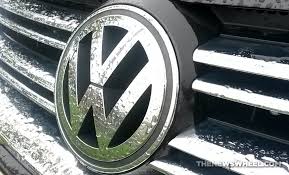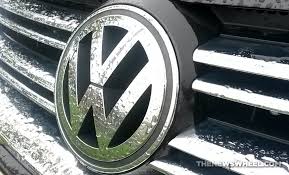
Volkswagen, Europe's largest automaker, maintained its 2022 forecast on Wednesday, blaming supply chain problems in Ukraine and the pandemic on its global production network.
Following COVID-related lockdowns and Russia's invasion of Ukraine, global carmakers, like most industrial sectors, are experiencing a shortage of crucial components, aggravating a continuing shortage of semiconductors.
"We used our position as a truly global company to balance production across our markets and relieve pressure where there were supply issues and product shortages," CEO Herbert Diess told journalists.
"For example when we had to cut back production in Europe due to a lack of wiring harnesses and in some areas had to shut down plants, we sent the semiconductors we didn't need to other regions."
Volkswagen said it expects sales to rise 8% -13 percent in 2022, with an operating profit margin of 7.0 per cent -8.5 per cent and a 5-10 per cent increase in deliveries, citing its worldwide structure that allows it to prioritise areas and high-margin goods.
"For the top line in particular, this is a positive surprise," Stifel analysts wrote.
Diess nevertheless cited the Ukraine conflict and the pandemic as sources of concern, saying the company couldn't predict the full impact of a worsening of the situation, which might include a restriction on Russian energy supplies.
Volkswagen said chip supply would increase in the second half of the year, despite plans to float luxury company Porsche AG in a partial initial public offering in the fourth quarter.
The company recorded sales of 62.7 billion euros ($66 billion) for the first three months of the year, up 0.6 per cent year on year, when preliminary results were released last month.
(Source:www.ft.com)
Following COVID-related lockdowns and Russia's invasion of Ukraine, global carmakers, like most industrial sectors, are experiencing a shortage of crucial components, aggravating a continuing shortage of semiconductors.
"We used our position as a truly global company to balance production across our markets and relieve pressure where there were supply issues and product shortages," CEO Herbert Diess told journalists.
"For example when we had to cut back production in Europe due to a lack of wiring harnesses and in some areas had to shut down plants, we sent the semiconductors we didn't need to other regions."
Volkswagen said it expects sales to rise 8% -13 percent in 2022, with an operating profit margin of 7.0 per cent -8.5 per cent and a 5-10 per cent increase in deliveries, citing its worldwide structure that allows it to prioritise areas and high-margin goods.
"For the top line in particular, this is a positive surprise," Stifel analysts wrote.
Diess nevertheless cited the Ukraine conflict and the pandemic as sources of concern, saying the company couldn't predict the full impact of a worsening of the situation, which might include a restriction on Russian energy supplies.
Volkswagen said chip supply would increase in the second half of the year, despite plans to float luxury company Porsche AG in a partial initial public offering in the fourth quarter.
The company recorded sales of 62.7 billion euros ($66 billion) for the first three months of the year, up 0.6 per cent year on year, when preliminary results were released last month.
(Source:www.ft.com)














